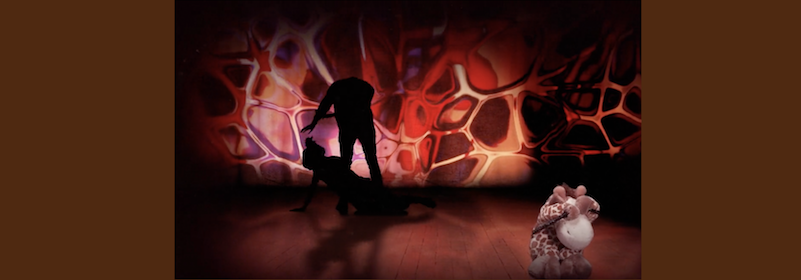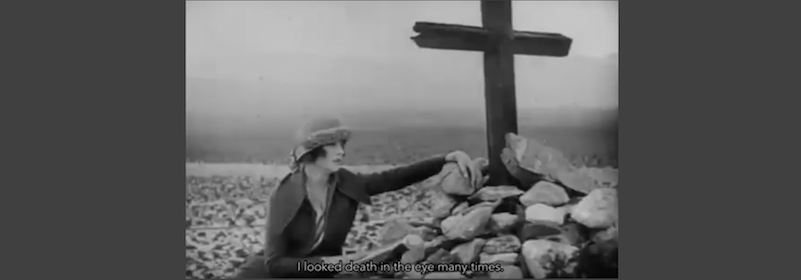As lockdowns continued, domestic violence increased throughout the world. For domestic violence charity, ANAIS, the need to bring awareness to a problem that is so easy to hide became urgent. ANAIS Roxana Niță, group creative director at Cheil Centrade, Romania, outlines the challenges of the task her agency faced and the real toys, the guilt gifts, that the agency used in its solution.
With a global pandemic still raging, many charities are facing enormous budget cuts as well as difficulty in cutting through amid wall-to-wall coverage about COVID-19. So when Cheil Centrade devised its third campaign for ANAIS, it knew that it would need to use innovative storytelling in order to counteract apathy and invisibility around this seemingly perennial cause.
The resulting work for the ANAIS Humanitarian Association focuses on the notion of “guilt gifts” – [the gifts that abusers give to “make up” for their attacks]. It uses puppetry in a series of eight experimental plays against domestic violence, using toys belonging to real victims and balances theatre, animation and dance in an entirely new way. With theatres closed, some of the techniques were born of necessity, but the outcome – with the help of Bucharest-based animation studio, Les Ateliers Nomad – is all the more original as a result.
An increase in domestic violence during the pandemic had led to more than 10,000 women being beaten by their partners in Romania, while 72 of them ended up being killed in the past year alone. Data from ANAIS, too, highlighted that shallow gestures of ‘gifts’, given in an attempt to appease victims, can in fact prevent women from escaping destructive relationships and perpetuate abuse, keeping victims in the cycle for longer. So, in asking the public to donate in order to watch the experimental films, they are being invited to give the most precious gift – freedom from a destructive relationship.
A team of screenwriters, directors, puppeteers, actors, choreographers and dancers came together to communicate for these often silent victims of domestic violence in this pro bono work; a world-first experimental theatre project aimed at fighting domestic violence and coming at a time when, tragically, theatres are a victim of the pandemic, too. Besides Cheil Centrade’s core team who coordinated the whole project, the teams involved in this heartbreaking campaign were the animation design & studio Les Ateliers Nomad, the puppeteers from Lightwave Theater Company, the performers Răzvan Rotaru and Corina Platon, the DOP Adi Bulboacă and Chainsaw Europe.
Launched on International Women’s Day, the first play shows a teddy bear – with the voiceover by famous Romanian actor, Victor Rebengiuc – telling the story of a woman who finally found the courage to leave after her arm was broken.
The food was not salty enough, the floor was not clean enough, the laundry was not dry enough, the bear tells us, adding, at the end, that he is a gift that should never be given to anyone – a guilt gift, aimed at persuading a victim to remain silent. Instead, ANAIS provides counselling, legal assistance, and other forms of support – whilst helping to develop policies together with authorities, and awareness and information to the cause.
Next, a toy giraffe – who marvels at its own spots, rather like the bruises on its new owner; and a bee, next to an animation of a house, in which we see the silhouette of a frightened woman and her baby, later driven out into the cold, bring home more real life stories of abuse which is often not just physical, but mental, too – involving financial control, for instance, or enforced isolation. All the soul-stirring theatrical mini-series were voiced by Romania’s top actors: Victor Rebengiuc, Medeea Marinescu, Mihai Gruia Sandu, Dana Tapalagă, Gabriela Bobeș, Isabela Neamțu, Radu Bânzaru and Marius Săvescu.
Yet still domestic violence receives little coverage in Romania. There is also an unhelpful perception that women will return to their abusers and that money donated may be wasted.
So, by creating this content, using real toys collected from ANAIS’ headquarters, and genuine data about the phenomenon of abusers’ “guilt gifts”, we aimed to show an all too familiar subject from an entirely different angle and with a fresh lens.
The content is currently being shown on social networks such as YouTube, Facebook, Instagram and on the ANAIS website, with shortened clips being created for TV. The plays are also being used as a debate starter for various TV and radio shows, with prime-time coverage on national networks.
We hope it will be shared more widely, given that the charity has faced budget cuts and urgently needs to raise donations for Romanian women, many of whom desperately need the help ANAIS offers in terms of psychological and legal guidance.
We hope, too, that these films may be used as a tool for education in the way our D&AD winning film, Unquiet Voices, has been in schools – showing the various types of domestic violence and the signs to look out for. The call-to-action is to donate, to give the ultimate gift – a real gift to these victims – that of freedom and protection from abuse.















